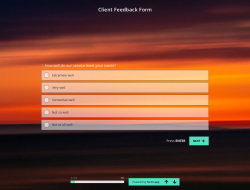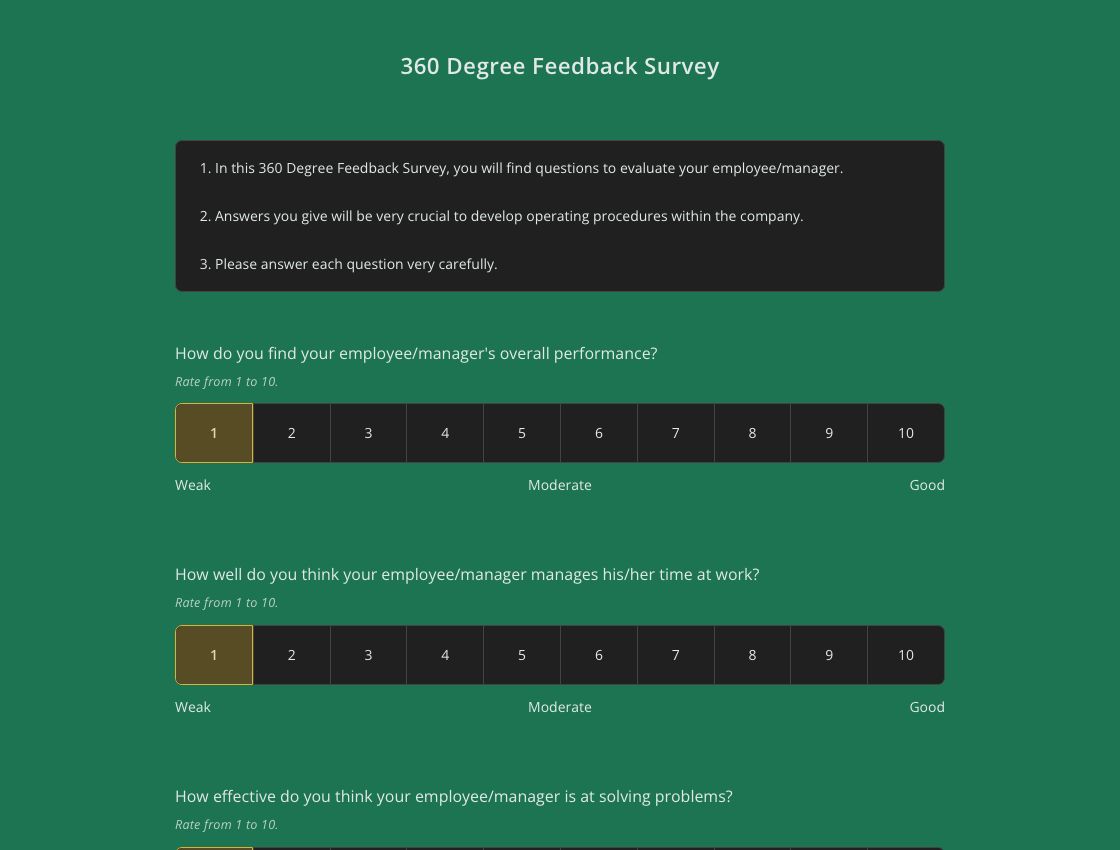Are you seeking a method to get user feedback? You're in luck if so! You may create and customize a survey that is simple to comprehend and enjoyable to complete by using the 15 Likert scale question samples we've compiled, along with free templates.
Asking consumers questions may be a wonderful approach to gain insight into their experiences with your product, whether you're conducting a test, developing an app, or simply attempting to understand what people think about your product. In this article, we will cover what is Likert scale. Who can use the Likert scale and 15 Likert scale question examples? And finally, how can you create your survey with a Likert scale using forms.app.
What is a Likert scale?
A Likert scale is a 5- or 7-point rating scale that is used to measure an individual's attitude toward a particular topic. The Likert scale has been around since 1932, when it was first developed by its namesake, Rensis Likert. The questionnaire item that asks participants to rate their feelings about something on a scale is called a "Likert question."
A Likert scale is a survey tool that asks respondents to rate the degree to which they agree or disagree with a statement. In its simplest form, it's a question with five possible responses ranging from one (strongly disagree) to five (strongly agree) numeric scales. The responses are then typically organized on a 5-point scale, with 1 being "strongly disagree" and 5 being "strongly agree."
This type of survey aims to get general opinions about a topic from a group of people so that you can understand how your audience feels about it. You can also use the results to understand better what elements of your product or service need improvement.
Likert scales are used to measure opinions, attitudes, and perceptions in research projects. They're also popular in market research because they're easy to understand, and there are no right or wrong answers, just numeric scales.
15 great Likert scale questions for different purposes
Likert scales are frequently employed in surveys of customer satisfaction and market research. They also apply to other fields, including psychology, social science research, and education. The scale is used to assess attitudes and beliefs. After video calls, you see “how was your connection” this can be a great example of the Likert scale.
It consists of a sequence of assertions, and the respondent rates their agreement or disagreement on a scale of 1 to 5. You've come to the perfect place if you're seeking some excellent Likert scale survey questions! These 15 various kinds of Likert scales are listed along with the scenarios in which they are most helpful.
1 - How happy are you with the good/service?
2 - Which of the following best captures how you feel about it?
3 - To what extent would you suggest our product or service?
4 - Invests time and resources in keeping staff members current with technology.
5 - How satisfied were you with our product or service?
6 - The checkout process for the internet store was simple.
7 - Please rate the significance of our customer service.
8 - The installation and setup instructions for the program were clearly laid out in the user handbook.
9 - How useful do you find instructional tutorials on our website?
10 - How frequently do you fly for business?
11 - How would you rate your performance in the company?
12 - How do you find your employee/manager's overall performance?
13 - How well do you think your employee/manager communicates with the other people at work?
14 - Do you think that your responsibilities are clearly defined?
15 - How would you rate our communication with you?
How to create surveys with Likert scale questions
The forms app might be useful if you wish to create or use pre-made surveys with Likert scale questions. You can choose which Likert type you want to use in your survey and customize it to match your need. To create surveys with Likert scale questions with forms.app:
1. Open forms.app, and select the survey template that you want to use or just start creating yours.
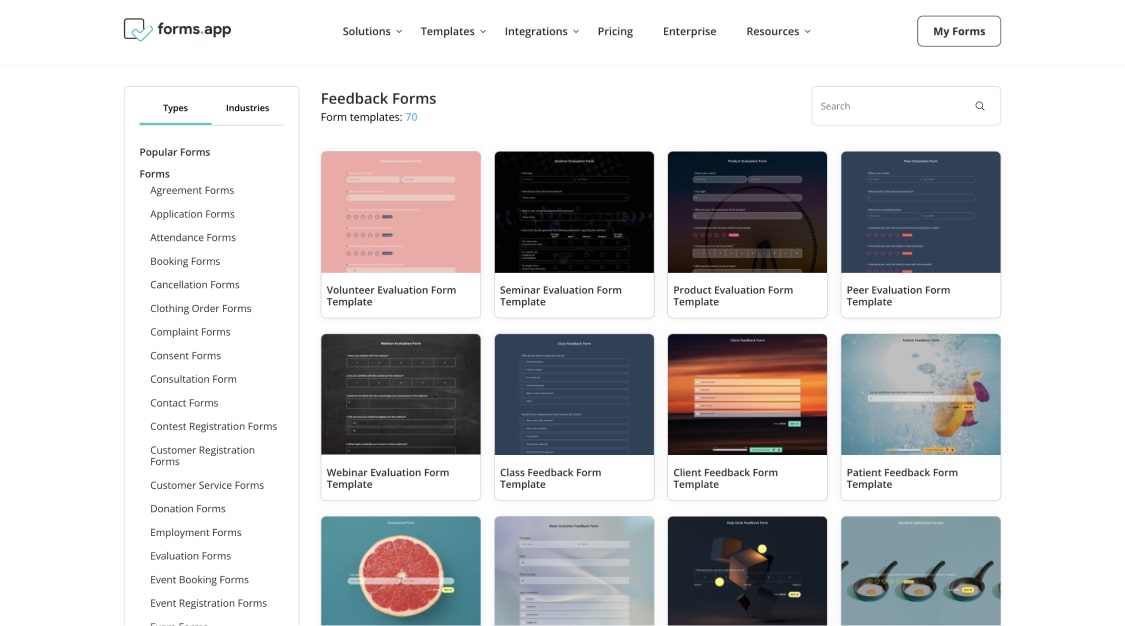
2. Edit form fields using star rating, opinion scale, selection matrix, or single selection.

3. Select a scale for your answer options, and then enter your questions into the text area that appears below your scale options.
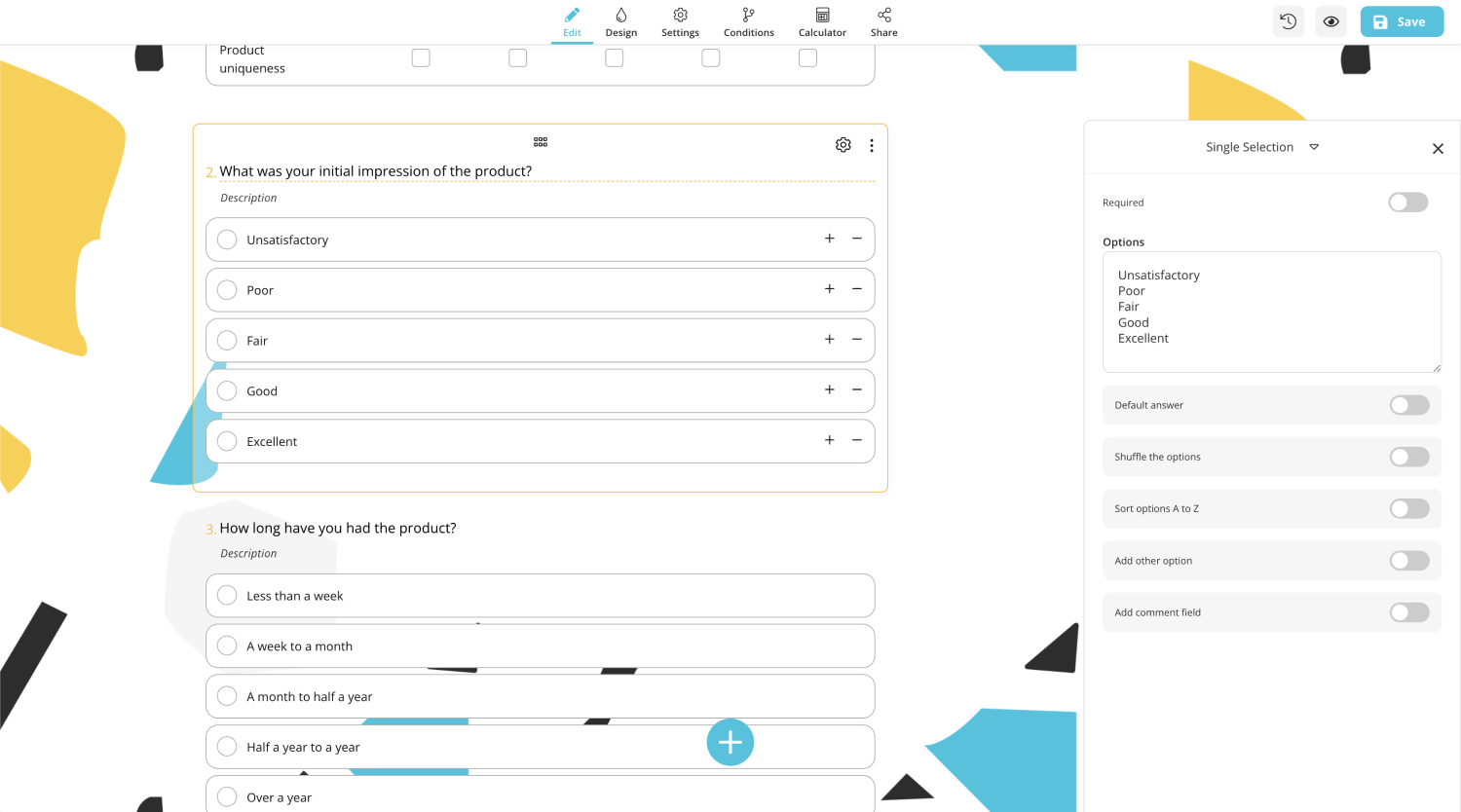
4. Once you've finished entering all of your questions, share them via social media or embed them on your website.
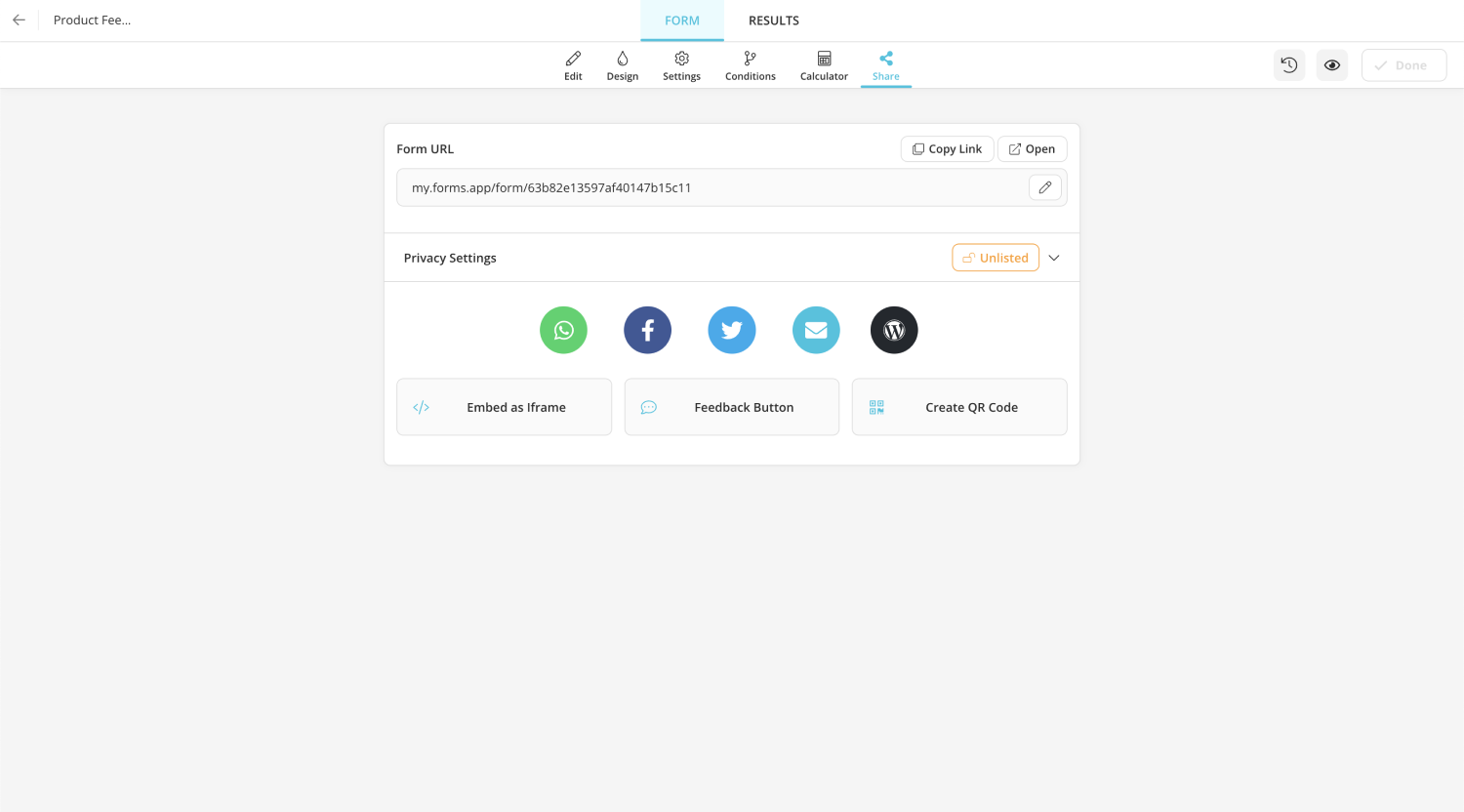
1. Method: Star rating
Your visitors may easily submit comments on anything by using a star rating area. The majority of surveys and applications employ this straightforward and efficient way of collecting feedback.
You may make it simple for your visitors to communicate whether they like or detest anything by providing a star rating section. It just requires a single click of time. This will enhance your response rates. Additionally, the statistics page will provide you with all the information about your star rating questions. You can customize your rating scale up to 1-11, you can use stars, hearts, or emojis, and you can also add an answer field and comment field on your star rating.
2. Method: Opinion scale
Visitors can express their ideas on a topic by selecting a number from an opinion scale in a form field. You may use this to measure public opinion of your business or product or any other topic. Additionally, opinion scales offer a simple and direct approach for people to express their feelings or opinions.
You have a variety of options when adding an opinion scale to your form on the Edit page:
- It is possible to change the scale's numbers up or down.
- You can select a default response.
- You can edit your questions.
3. Method: Single selection
You may add questions with many answers and let your responders choose only one of them by using the single selection field. By selecting it from the form field menu, you can easily add this field to your forms, surveys, and quizzes. You can choose from choices in this form field's settings.
Free survey templates to get started
One of the most flexible methods for learning more about your clients is through surveys. You may customize them to find out their feelings about using your product or determine whether they would suggest it to others.
A 1 to 5 rating scale template can be used for more than simply data collection; it is also a perfect way to gain input on new features and determine what your consumers will desire in the future. And you are more likely to have a better knowledge of what your clients want from you when you inquire about their opinions of various parts of your company. Finally, here are some Likert scale questionnaire examples:
.jpg)
